Houston Rockets
Houston Rockets Salary Cap Update: 2021 Post-Draft Edition
Breaking down the Houston Rockets complete salary cap situation as they finish the draft and head towards free agency
Published
4 years agoon
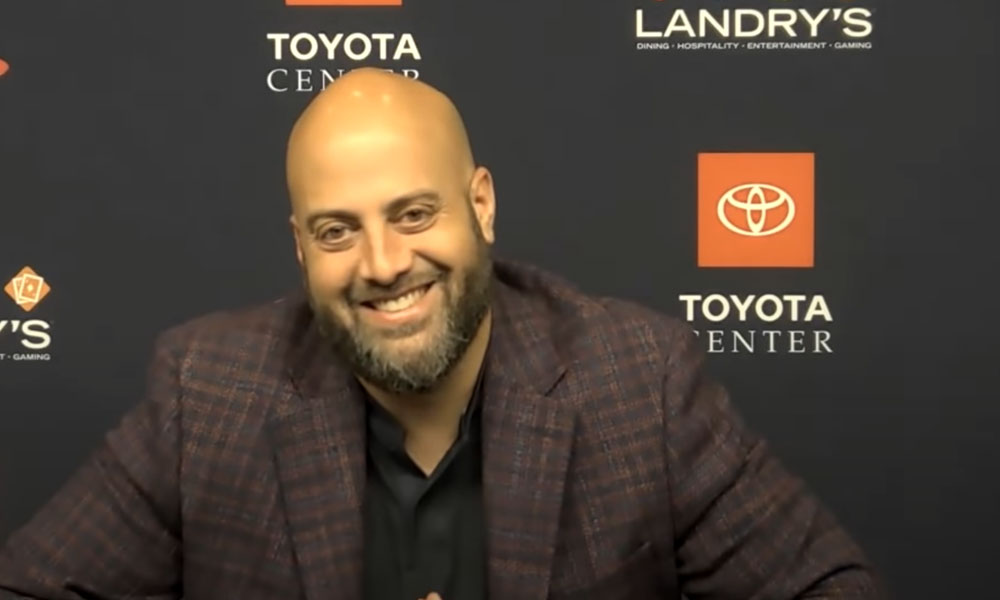
Well, … it’s been a while.
Since my last Salary Cap Update, the Houston Rockets re-structured their team (and mortgaged part of their future) for Russell Westbrook and then – after a one-year failed experiment – blew it all up by trading Westbrook, P.J. Tucker and franchise cornerstone James Harden.
What was left was a hodgepodge of veterans and a few intriguing young players that stumbled to the league’s worst record in 2020-21 (17-55). But with a little lottery luck, the Rockets dodged a potentially disastrous pick swap with the Oklahoma City Thunder and landed the #2 overall pick in the 2021 NBA Draft.
On Thursday night, Houston drafted Jalen Green (#2), Alperen Sengun (#16), Usman Garuba (#23) and Josh Christopher (#24). The whopping FOUR first round picks were largely the product of a series of trades negotiated by Rockets GM Rafael Stone and his front office.
So, with the draft now over, let’s take a look at the Rockets’ cap situation heading into free agency.
Player Salary, Exceptions and Available Cap Room
The Houston Rockets currently have the following player salary commitments, cap holds and salary cap exceptions available for the 2020-21 season (assuming that the league’s current projection of a $112.4 million salary cap is accurate and that the rookies all get 120% of their rookie scale salaries):
Player salary commitments: John Wall ($44.3 million), Eric Gordon (18.2 million), Christian Wood ($13.7 million), Green ($9.0 million), D.J. Augustin ($7.0 million), Danuel House ($3.9 million), Sengun ($3.2 million), Garuba ($2.4 million), Christopher ($2.3 million), Kevin Porter, Jr. ($1.8 million), Khyri Thomas ($1.8 million, non-guaranteed), Jae’Sean Tate ($1.5 million, non-guaranteed), K.J. Martin ($1.5 million, expected to be guaranteed shortly after this publishes) and the long-since-waived Troy Williams ($122,741, like clockwork).
Cap holds: Kelly Olynyk ($18.9 million – Rockets hold full Bird rights), Dante Exum ($18.2 million – Rockets hold full Bird rights), D.J. Wilson (potential restricted free agent; $13.6 million – Rockets hold full Bird rights), Avery Bradley ($5.9 million team option; $11.2 million cap hold if option is not exercised – Rockets hold Early Bird rights), David Nwaba ($1.7 million – Rockets hold Early Bird rights), Sterling Brown ($1.7 million – Rockets only have Non-Bird rights), Armoni Brooks (potential restricted free agent; $1.5 million – coming off a two-way contract) and Anthony Lamb (potential restricted free agent – coming off a two-way contract).
Other Salary Cap Exceptions: If Houston operates over the salary cap this summer (extremely likely), the Rockets will have access to the Non-Taxpayer Mid-Level Exception (NT-MLE, expected to be around $9.5 million, the use of which would impose a hard cap at the “apron” level – currently projected at about $136.6 million). Although it would also impose a hard cap at the apron level, Houston could possibly use the Bi-Annual Exception (BAE, expected to be around $3.7 million), since they did not use it last summer. In the unlikely event that the Rockets use cap room this summer, they could instead have the Room Exception of around $4.9 million at their disposal. Assuming they operate over the salary cap, the Rockets will also have a few traded player exceptions (TPEs) left over from earlier trades, most notably for $8.2 million (from the Victor Oladipo trade) and $5.0 million (left over from the Harden trade).
Given their salary commitments, Bird rights to their free agents and additional cap exceptions available to them, the Rockets should operate over the cap for the 2021-22 season. Barring trades (or cheaping out on the rookie scale contracts), the Rockets could only create around $4 million in cap room in the alternative.
Preliminary Internal Decisions
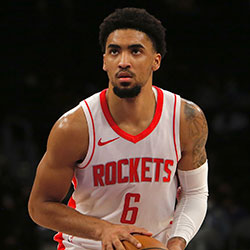 Ahead of the NBA’s free agent season, Stone and his team will need to address some internal matters.
Ahead of the NBA’s free agent season, Stone and his team will need to address some internal matters.
Most immediately, Houston needs to decide whether to extend qualifying offers to its younger free agents. The largest qualifying offer would go to Wilson, but given the prohibitive amount ($6.4 million), it is unlikely they will give him one. They will still retain his Bird rights, however.
The Rockets can make each of Brooks and Lamb – coming off a two-way contract – a restricted free agent by extending him another two-way contract for next year (with $50,000 guaranteed) as a qualifying offer. Given their relative performances last season, it seems more likely that Brooks would receive a qualifying offer than Lamb.
The Rockets also need to decide whether to fully guarantee Martin’s salary for the coming season. As noted above – and given his terrific play last season – this one is a no-brainer.
Lastly, the Rockets need to decide whether to exercise their team option on Bradley. Given his less-than-stellar play last season, that option will likely go unexercised.
Internal Free Agent Decisions
Houston will have some decisions to make with their own free agents heading into August, including how to prioritize which free agents to bring back.
 Kelly Olynyk: Olynyk shocked most Rockets fans when he played at a near All-Star caliber level after arriving in the much-maligned Oladipo trade. He should be one of the more coveted free agent big men this summer. However, in today’s NBA landscape, non-elite big men are not necessarily commanding top-dollar. If a playoff contender isn’t offering Olynyk more than the NT-MLE, Houston may be able to retain him on a short-term (one- or two-year) deal at a premium. Figure something in the $12 million to $16 million range per season, possibly even more.
Kelly Olynyk: Olynyk shocked most Rockets fans when he played at a near All-Star caliber level after arriving in the much-maligned Oladipo trade. He should be one of the more coveted free agent big men this summer. However, in today’s NBA landscape, non-elite big men are not necessarily commanding top-dollar. If a playoff contender isn’t offering Olynyk more than the NT-MLE, Houston may be able to retain him on a short-term (one- or two-year) deal at a premium. Figure something in the $12 million to $16 million range per season, possibly even more.
David Nwaba: In one of his final roster moves as Rockets GM, Daryl Morey (probably with input from Stone) signed a then-injured Nwaba to a two-year deal, likely envisioning the very scenario that the Rockets face now. Because he was signed to a two-year deal, Houston retains Early Bird rights to Nwaba and is able to offer him a multi-year deal in the $10 million per season range. While Nwaba played extremely well for the Rockets before injuries forced him to shut down his season, it is unlikely that he will command that much on the open market. Still, at least one smart GM of a playoff contender should make Nwaba a competitive offer this summer. And given the Rockets’ recent glut of guards/wings, it appears less likely now that Houston will have room on the roster for Nwaba.
Sterling Brown: Brown ended up being a terrific value for the Rockets, playing on a one-year veteran’s minimum deal. He shot the ball well from 3-point range and displayed some ballhandling and defensive skill. However, between the glut of guards on Houston’s roster, the Rockets’ lack of meaningful Bird rights and his obvious appeal to playoff teams as a nice bench addition, it seems likely that Brown will not return. Expect Brown to get offers in excess of the veteran’s minimum.
Avery Bradley: Bradley never found his shooting touch in Houston after coming over in the Oladipo trade. It is highly unlikely his team option will be picked up or that the Rockets will make him a serious offer in free agency. He is expected to latch on with a contender, perhaps on a veteran’s minimum deal or for the BAE.
D.J. Wilson: While not expected to receive a qualifying offer, Wilson did show some flashes of why the Milwaukee Bucks used a first-round pick on him four years ago. Depending on what other roster moves the Rockets make this summer, the door may be open for Wilson to return, albeit likely on a veteran’s minimum deal.
Dante Exum: Much to this author’s chagrin, Exum never played a minute for the Rockets after coming over as salary filler in the Harden trade. Once a highly-touted lottery pick, Exum has been ravaged by injuries in his career and relegated to being a defensive stopper on the perimeter rather than the star he was supposed to be. While he may still have enough intriguing skills to entice the Rockets to want him back, that prospect seems unlikely at this point.
Armoni Brooks and Anthony Lamb: As noted above, Brooks has a chance to receive a qualifying offer, while Lamb probably won’t. Depending on their performance in summer league, one or both could receive a training camp invite in September. Their prospects remain cloudy.
Michael Frazier: Believe it or not, the Rockets still retain Frazier’s free agent rights. Houston had to renounce all their other “old” free agent rights in order to complete the Tucker trade in a cap-favorable manner, but Frazier’s cap hold was negligible and could be kept on the books. That said, don’t expect him to make a triumphant return to Houston.
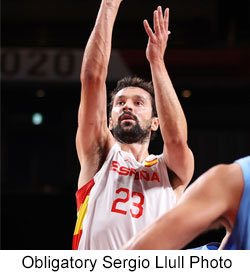 Issuf Sanon (a/k/a the Sergio Llull Memorial Draft Rights Held Spot): You didn’t think this author would allow a Salary Cap Update to go by without a Llull reference, did you? While Llull’s draft rights now sit with the New York Knicks, they received the draft rights to Sanon in that same trade. Admittedly, Sanon’s game is fairly unremarkable, so his prospects of being a Houston Rocket are slim.
Issuf Sanon (a/k/a the Sergio Llull Memorial Draft Rights Held Spot): You didn’t think this author would allow a Salary Cap Update to go by without a Llull reference, did you? While Llull’s draft rights now sit with the New York Knicks, they received the draft rights to Sanon in that same trade. Admittedly, Sanon’s game is fairly unremarkable, so his prospects of being a Houston Rocket are slim.
Outside Free Agents
Unlike in prior offseasons during the Harden Era, Houston is unlikely to be an attractive destination for many of the league’s veteran free agents. With only the NT-MLE to offer, the Rockets won’t be able to afford any of the top free agents, nor will they be able to compete with comparable offers from playoff contenders. Most likely, the best players to agree to sign in Houston would probably be on overpays, something that seems antithetical to the Rockets’ current philosophy.
While it seemed likely a week ago that the Rockets would have at least one frontcourt opening to fill in free agency, the drafting of Sengun and Garuba – both of whom should receive frontcourt minutes next season along with Martin – and the fit of bringing back Olynyk (who is probably better than any outside free agent willing to sign in Houston this summer) now make it less likely that such a signing is needed. But for argument’s sake, the Rockets could possibly have interest in a player like JaMychal Green if he can’t come to terms with the Denver Nuggets on a new deal.
Like in recent years’ past, it may be good practice for the Rockets to hold onto at least a portion of their NT-MLE in order to either play the buyout market or sign a young free agent to a multi-year deal (as they did with Thomas this past season).
This author will leave it to others (or at least won’t cover it here) as to which particular free agents the Rockets will pursue this summer.
The Taxman Won’t Cometh
With the trade of Harden also went any chance of Rockets owner Tilman Fertitta paying any luxury tax for the foreseeable future. Contrary to popular belief, this author is still convinced that Fertitta would have been willing to pay the tax had the Harden-Westbrook pairing been more successful in 2019-20. But alas, it was not and he did not.
Barring any trades or free agent signings, and assuming that Bradley’s option is declined and the rookies get 120% of their rookie scale, the Houston Rockets should have around $25 million in room below the luxury tax threshold to spend next season. (Keep in mind, however, that the Rockets are still limited on what they can offer outside free agents in an outright signing to the NT-MLE amount.) But Houston already has 13 players on its roster, and with two-way players once again allowed to stay with their NBA teams all season, it is quite possible the Rockets will only carry 14 players on their 15-man roster for much of the season. If they re-sign Olynyk, that’s 14 players.
One possible strategy for a team hoping to develop its young core with as many minutes as possible is to keep that 15th roster spot open for future trades, utilizing its TPEs to take on other teams’ unwanted salary for the price of future draft picks.
While this article primarily focuses on the 2021 offseason, there is a chance that the Rockets could open up a massive amount of cap room in the summer of 2023, when Wall and Gordon come off the books. Hence, any dead money taken on in trades this summer should probably not extend beyond 2023. But 2023 plans are a topic for another article.
Conclusion
After blowing up a contender, the Houston Rockets now find themselves picking up the pieces. While they found a few pieces last season and just added up to four more (including Green, the biggest piece of all), there is still much work to do. Armed with cap exceptions, TPEs and a treasure trove of future picks, the Rockets should be able to further bolster their roster in the coming years to create another contender.
Until then, we wait.
Wait, and enjoy the ride.
You may like
Houston Rockets
Looking Back on the Trade for Phoenix’s Draft Picks
Are the Rockets set to cash in on Phoenix’s downfall or could a Suns retool murky the waters?
Published
4 weeks agoon
March 12, 2025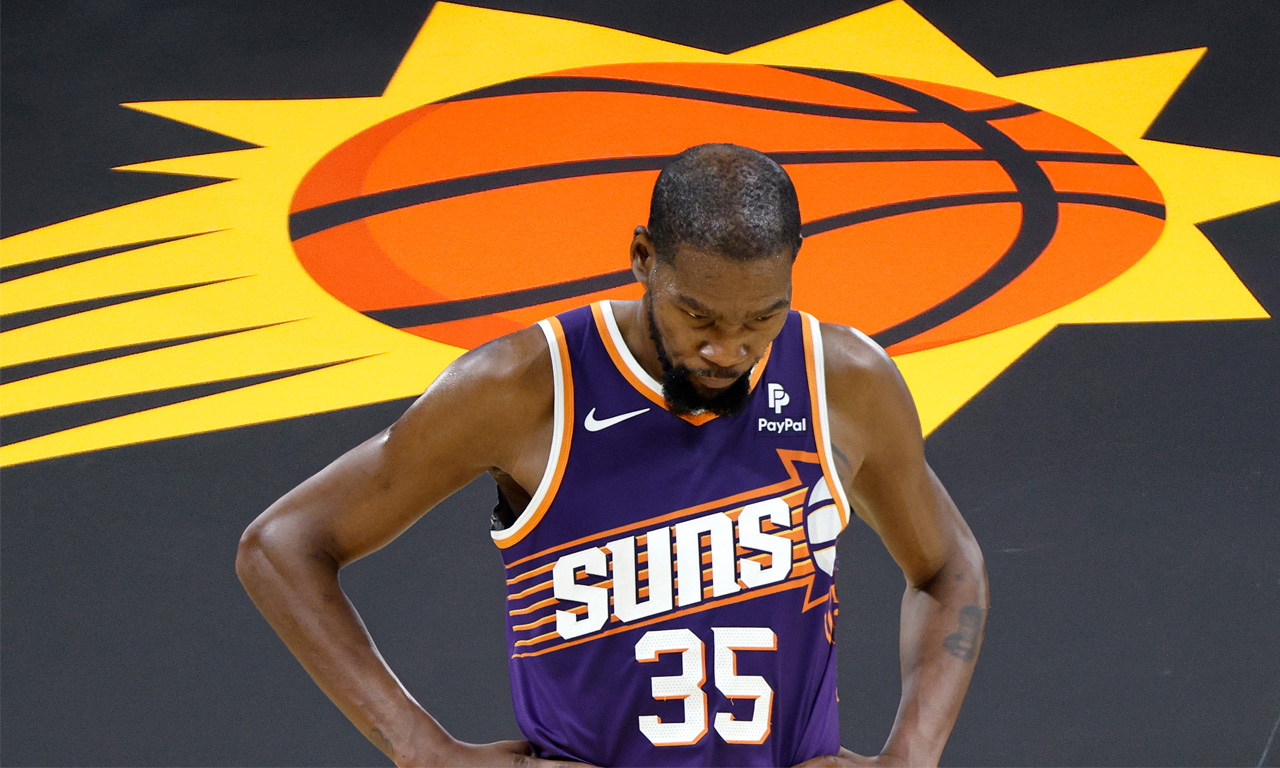
As the Houston Rockets set to host the Phoenix Suns tonight, it seems the right time to take a look back at the trade that linked these two franchises together for the foreseeable future.
This past June, the Rockets made a trade with Brooklyn that sent back to the Nets control of their 2025 and 2026 unprotected first-round picks. In exchange, the Rockets received a large chunk of Phoenix’s future (2025, 2027, 2029) and control of the Dallas Mavericks’ 2029 first.
In essence, the Rockets traded one pick and one swap for two picks and two swaps. All unprotected.
Thoughts At The Time of the Trade
If I’m going to discuss the current outlook of this trade, I have to be honest about how I saw it at the time of the move. While I didn’t hate this trade initially, I definitely didn’t love it either.
I liked that the Rockets increased their overall trade assets. I also liked that they extended the timeline to be able to make a bigger trade and I also appreciated that they kept control of the 2027 Brooklyn swap.
But I didn’t like that the Rockets gave up what seemed like the more established value (Brooklyn) for a more uncertain gamble (Phoenix). The Rockets did not control a “tanking runway” of picks to offer back to Phoenix — all of the picks Houston got in the deal were in staggered years (’25, ’27, ’29). I also felt Brooklyn, who badly needed to rebuild, got away with paying market value to get their picks back despite the fact that the Rockets invested years in watching those picks appreciate up to the point that they had the Nets completely over a barrel.
Net-net: I felt like more certainty was traded for less certainty and it was more of an equitable trade for both teams rather than Brooklyn paying dearly to get back the things only the Rockets could offer.
There were two ways I thought this trade could pay dividends: The Suns needed to flame out immediately, as in this season (unlikely), or the Rockets could trade all those pick assets as part of a deal for a real superstar in the next 12-18 months (more likely).
In a testament to how quickly change can occur in a very unpredictable NBA, four things have happened that have been positive indicators for the Rockets in making this move.
The Suns are fading
While Phoenix had major salary cap issues, dealing with the second apron, they didn’t appear to have problems on the court. They jumped out of the gate 8-1 and looked like a legitimate contender behind their star trio of scorers in Kevin Durant, Devin Booker and Bradley Beal.
Given Houston controlled Phoenix’s pick this year via a swap, it looked like the Rockets would come up empty-handed on the trade this season.
That changed quickly.
Injuries, serious depth concerns and a lack of a defensive identity has sent Phoenix spiraling. Booker’s availability has been inconsistent, forcing Durant to carry the load, while Beal has not quite fit in at all. Their financial limitations, thanks to owner Mat Ishbia’s all-in spending spree, have handcuffed their ability to improve the roster around the three stars.
The Suns are sitting 11th in the West, having gone 22-34 since that hot start, and are currently trying to catch a depleted Dallas squad to get back into the play-in picture.
As of right now, the Rockets project to end up with a lottery pick (albeit a late one) this season out of the trade.
Phoenix was caught shopping Durant
Because the Suns struggled so hard after the start, they tried to make a major move at the deadline but could not unload Beal, in large part due to his no-trade clause.
As a result, they may have made a misstep: They openly tried to trade Durant, which inevitably became public news.
Now? Durant will almost assuredly be traded this summer — likely to a destination that he handpicks. This means the Phoenix Suns will have to look at all possibilities for their future, including potentially having to give Rafael Stone and the Rockets front office a call.
But keep in mind, the Rockets can not offer Phoenix the ability to completely rebuild via the draft right now. Phoenix’s 2026 pick is controlled by Washington. They would have to get extremely creative to set that stage. A retool in Phoenix is much more likely.
Could Brooklyn have been better than expected?
This one is tougher to gauge.
The Brooklyn Nets are currently tied for fifth-worst team in the league, giving them strong lottery odds this summer. This was expected. After all, the Nets, even with a healthy Mikal Bridges and a full roster, were not a good team last season, closing the year 20-41 in the final three quarters of the season. The Rockets ended up with the #3 pick (Reed Sheppard) as a result of Brooklyn’s mediocrity.
However, if the Rockets had not placed that pick back in Brooklyn’s hands, would the Nets be better than this?
Brooklyn brought in a new coach in Jordi Fernandez that has had a positive impact. They have dumped off players, such as Dennis Schroeder and Dorian Finney-Smith, that impacted winning. The bar to make the play-in in the East (.415 winning percentage) is obscenely low, with Brooklyn being just five wins away from it at the moment.
And on top of that, Brooklyn did have lots of draft capital that they could have moved to try to win now.
It’s very tough to say as you don’t know if a team with Bridges still in Brooklyn might have actually been worse than this current squad, but you could make a case that the pick the Rockets would have ended up with from Brooklyn this season would be eerily similar to the one they will end up getting from Phoenix this year.
Again, this is a tough call.
Nico Harrison Hooked the Rockets Up
As part of the trade, the Rockets got control of the Dallas Mavericks’ 2029 first-round pick (unprotected, of course). While there’s really no way of knowing what a pick will be five years out, we did know that Luka Doncic would be just 29-30 years old that season and it was fairly etched in stone that he would be the core piece of a Dallas squad that season.
Enter chaos in Dallas.
Doncic was shipped out in the trade that shocked the world, which could have a major impact on the Rockets. Dallas’ current core of Kyrie Irving and Anthony Davis will be 37 and 36 years old that season, respectively.
On paper, the value of that pick shot up.
Final Summary
Right now, the outlook on these picks looks strong. One source stated off the record that they feel the 2029 Phoenix pick is the best pick asset out there that is owned by another team. The Rockets would be reluctant to add that one specifically into any trade unless it’s for a truly legitimate star.
But if there is any lesson that the NBA teaches us over and over again, it’s that it’s very hard to predict where a team will be a year from now, much less three years from now.
Can the Rockets pressure Phoenix and leverage the ownership they have of their draft capital to get what they really want (Booker) from them? Could a Suns retool around Booker and Beal, with the right pieces and assets acquired from a Durant trade, significantly change their on-court outlook and cap sheet — which in turn could damage the value of the picks Houston controls?
Bottom line is it has worked out well this season, and the future forecast at the moment is promising. The current value of those future picks appears strong. What will likely determine history’s final grade for this trade will be how it sets them up for the trade to come, and that’s where fans will be looking to Stone and the front office for action starting this summer.
Houston Rockets
Amen Thompson’s ankle injury will be re-evaluated in one week
“The things he does you can’t replicate,” says Rockets coach Ime Udoka
Published
1 month agoon
March 10, 2025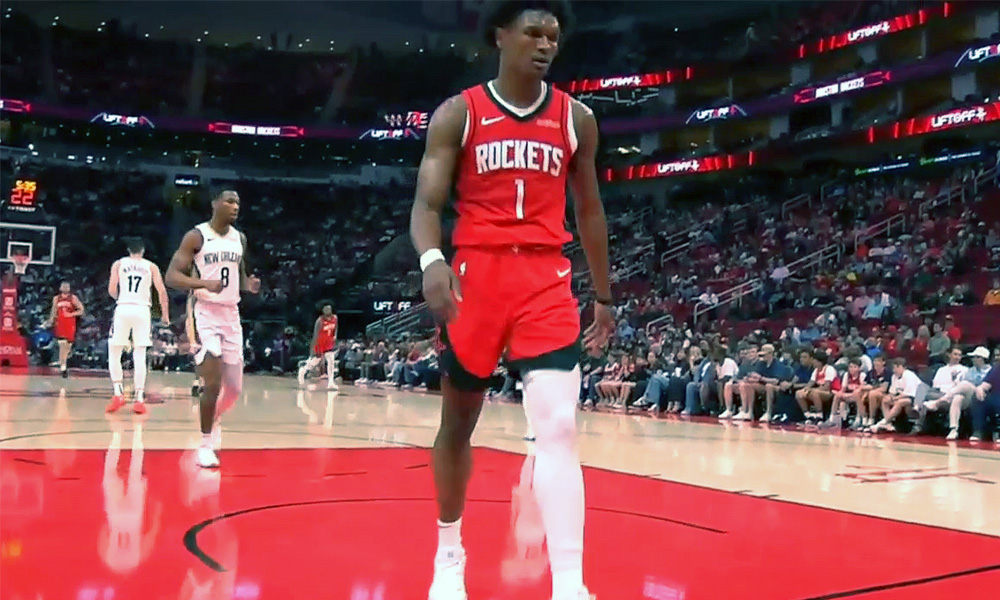
Rockets young star Amen Thompson will have his ankle injury re-evaluated in one week, according to Ime Udoka.
Thompson had an MRI on Sunday and the Rockets coach confirmed all imaging (X-ray, MRI) was negative.
“Just some swelling and pain, obviously,” said Udoka.
If you listen to Udoka, you can tell he knows how special Amen is to this team. He said the Rockets are missing a lot by not having him out there.
“Obviously, the things he does you can’t replicate,” said Udoka. “[Amen is] a guy that plays every position for us. When one goes down, he runs the point. If another is out, he runs the four.”
Amen is one of the best defensive players in the game, and as a one-on-one defender of guards/wings, he might already be the best in the league in just his second season. He’s holding his opponents to 40.5% shooting from the field, tops in the league.
“He’s a very unique defensive player,” said Udoka. “We got some guys that do some great things there, but I like to put him and Dillon on the best two usually, night to night. You got Tari and that’s a luxury as well, but the way he goes about it is different. His athleticism, size, speed, strength, shotblocking ability, steals… he’s all over the place.”
“Hard to replicate for sure.”
Amen injured his ankle late Saturday night in a blowout win against the Pelicans, but the unfortunate part was he probably should not have been on the floor in the first place.
The Rockets left Amen Thompson in the game in a blowout to get one more rebound for a triple-double and he just got injured. He's heading to the locker room with a limp. https://t.co/UBtrEpgWuU pic.twitter.com/D8GeKP8sQk
— ClutchFans (@clutchfans) March 9, 2025
The Rockets had built well over a 30-point lead by early fourth quarter. Jalen Green was able to rest the entire fourth. Alperen Sengun came out of the game with 7-8 minutes left while Dillon Brooks and Tari Eason came out with 6:00 left. But Thompson, who had posted an insane +39 on-off number, remained in the game because he was one rebound shy of a triple-double with 15 points, 11 assists and nine rebounds.
Udoka addressed that decision on Monday before the game against Orlando.
“What I typically don’t do is wholesale substitutions,” said Udoka of the decision to keep Amen in the game. “Albeit 30[-point lead] at six minutes [left] is different than losing to Minnesota, a 16-point lead with four minutes [left].”
“I’ve seen it go both ways in the past. You take out guys too early and have to bring starters back, and vice versa.”
Thompson has played in 60 games this season, five short of being eligible for postseason awards. He absolutely should be up for an All-Defensive nod this season so keep an eye on him getting back in time for that. He would need to return to action no later than April 4th for the game against the OKC Thunder in order to play enough games to be eligible.
Houston Rockets
How the Kyrie Irving Injury Impacts Rockets
Houston’s draft positioning and offseason plans could be impacted by Dallas
Published
1 month agoon
March 4, 2025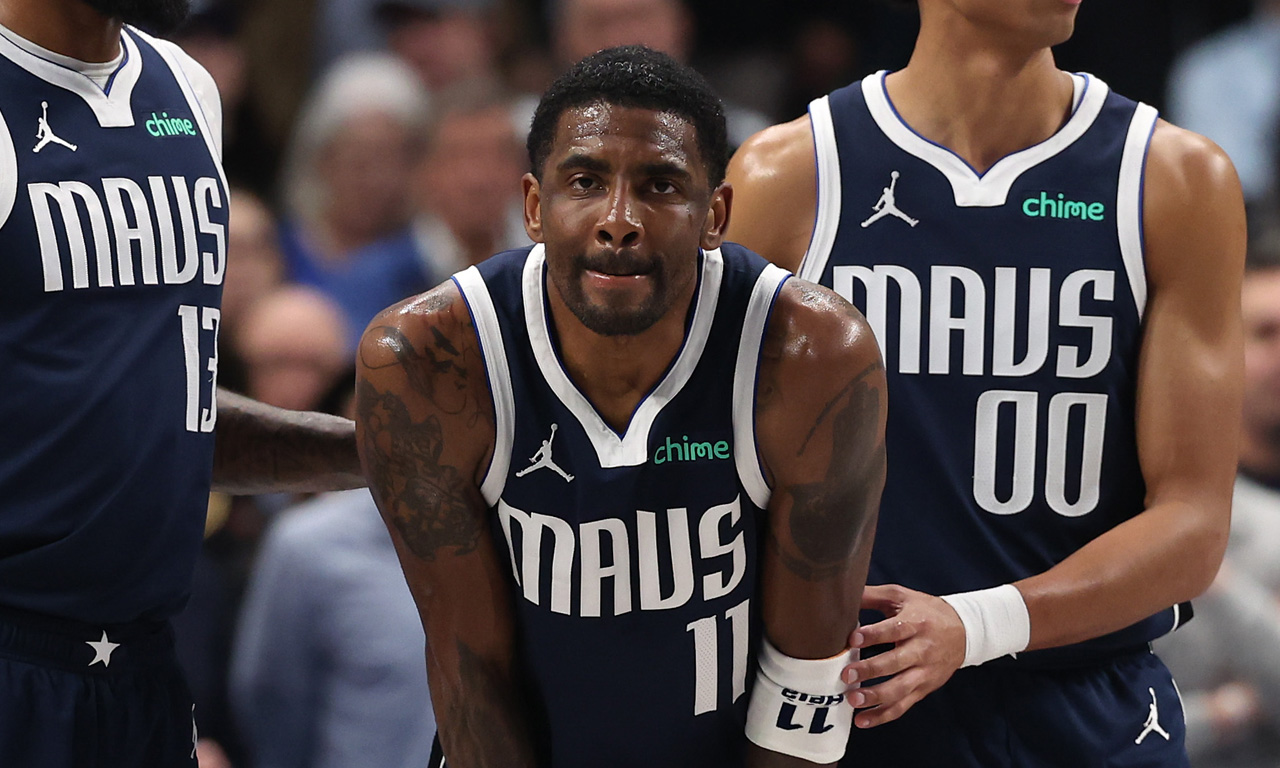
Dallas Mavericks guard Kyrie Irving was injured Monday night and the news dropped on Tuesday that the knee injury is serious — a torn ACL in his left knee that will end his season and a good portion of next season as well.
Brutal. I can’t think of an NBA team that imploded faster than the Dallas Mavericks.
You trade away a 25-year-old phenom who just hoisted you on his back en route to the NBA Finals a year ago. You cashed in that golden ticket to go all-in on a trio of aging stars in Kyrie, Anthony Davis, and Klay Thompson.
Bold strategy, Nico. Let’s see if it pays off.
(Narrator: It’s not paying off.)
The Mavericks had some interesting potential this year and maybe the next couple of years once everyone was healthy, but now? Their star guard is likely out until the calendar year 2026 and Klay and AD aren’t getting any younger nor more durable. The Mavericks may have actually swapped their future for a present that never arrives — and Dallas GM Nico Harrison has to be feeling overwhelming pressure right now.
So how does this impact the Rockets?
For starters, Houston has a game remaining on the schedule against Dallas on March 14th at Toyota Center — Davis may or may not be back for that game.
More importantly, Dallas is the 10th seed in the West at the moment, just 3.5 games ahead of the Phoenix Suns (11th seed). The Rockets control Phoenix’s first-round pick unprotected this season via a swap. We need as many West teams as possible ahead of Phoenix to keep them out of the play-in/playoffs and to push them as deep into the lotto as possible.
This complicates that. Phoenix’s remaining schedule is the toughest in the NBA by a good margin, with plenty of games left against the league’s best teams, so it still looks promising overall — but we’re talking about Kevin Durant, Devin Booker and Bradley Beal. They can still get hot at the right time while Dallas may struggle.
So keep a close eye on that. The good news is the Portland Trail Blazers are one of the hottest teams in the league and they are (shockingly) nipping at the Arizona squad’s heels.
Taking a look ahead to the offseason, the Kevin Durant Pursuit will be big.
This one is a little more complicated for Houston. The Rockets really want Devin Booker but, as of now, the Phoenix plan appears to be to trade KD this offseason and retool around Booker. The Rockets will have interest in Durant but they’re not going to sell the farm (prospects and all the picks) for a 37-year old like they would for Booker.
Three teams that I’ve heard a lot about from Rockets circles that will be in the mix are Houston, Minnesota and Dallas — Timberwolves and Mavericks have been considered the main competition. But, a lot of this will depend on Durant himself and where he wants to play at this stage of his career.
Keep in mind also, if the Suns are “retooling” around Booker and Beal (holding the no-trade clause), then they could be placing a higher priority on win-now players over the return of their own draft assets. The Rockets definitely have the best assets overall to offer up in any trade package between those three teams, but if Phoenix does prefer finding the right ready-to-win players around Booker/Beal, that gives Dallas and Minnesota a real chance.
This injury “may” take Dallas out of the equation, and they are/were definitely a contender for KD’s services given his past relationship with Kyrie and the way Dallas was positioned to win right now. Does KD at his age want to wait for Kyrie to be healthy?
And one last friendly reminder: The Rockets control that Dallas 2029 first (unprotected).
Houston Rockets
Rockets Sign David Roddy to Two-Way Contract
Former first-round pick has played with the Grizzlies, Suns and Hawks
Published
1 month agoon
March 3, 2025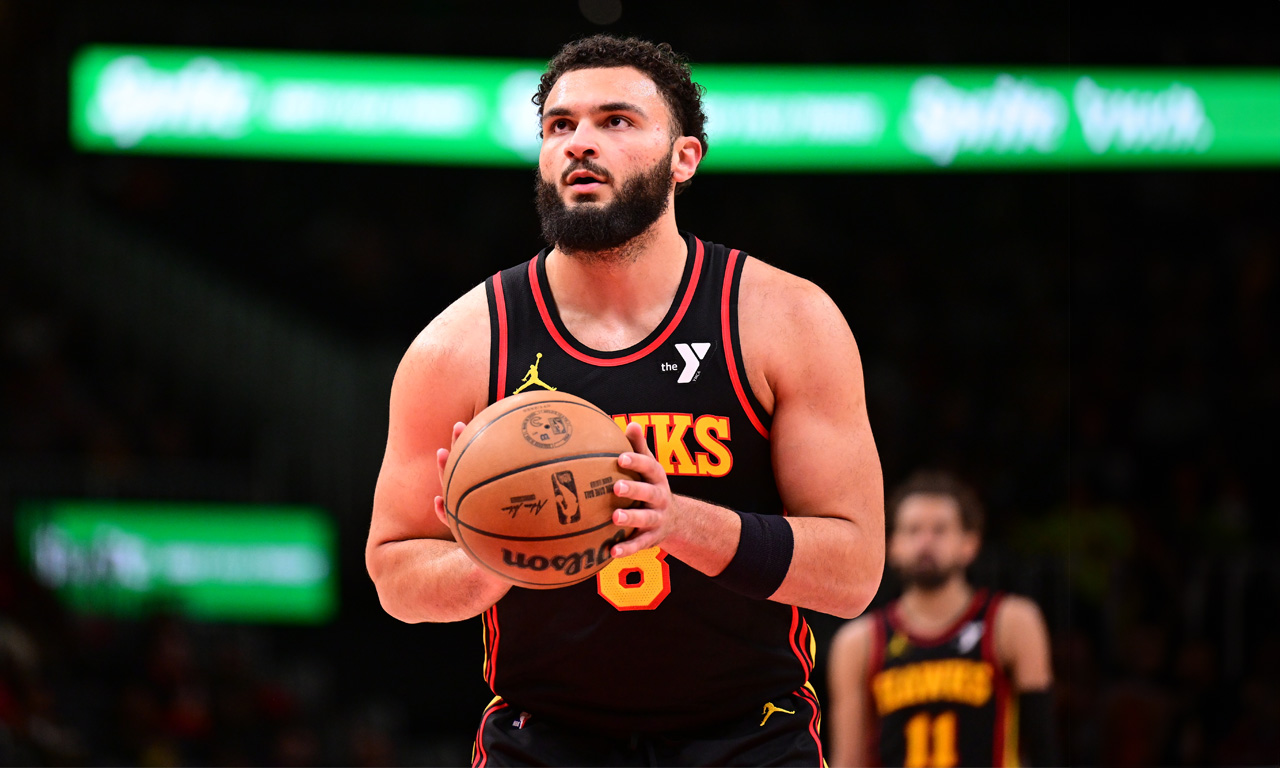
The Rockets made a move on Monday, signing former first-round pick David Roddy to a two-way contract.
The two-way spot opened up after the front office signed Jeenathan Williams to a standard four-year, $8.2 million contract (with friendly team options all along the way).
Roddy is 6-foot-5 and 250+ pounds but sports a 6-foot-11 wingspan. He was taken with the 23rd pick in the first round of the 2022 NBA Draft — six selections after the Rockets drafted Tari Eason. A standout in college, Roddy averaged 19.2 points, 7.5 rebounds, 2.9 assists, 1.2 steals, and 1.1 blocks per game during his junior season at Colorado State.
Roddy, who turns 24 later this month, is a physical player who can play multiple positions. He’s a solid rebounder for his size/position. He has played in 165 games over three seasons with the Grizzlies, Suns, Hawks and most recently Sixers, averaging 6.2 points and 2.9 rebounds per game.
The guard/forward has not shown efficient shooting, however — he’s a career 30.5% three-point shooter and just 68.4% from the line. His defense is better inside than out.
Ultimately, it will be those two things — three-point shooting and defense — that will determine his chances of carving out a consistent role in the league.
All in all, it’s a low-risk signing and the Rockets get a look at a prospect that fits their age timeline.
Houston Rockets
Houston a potential landing spot for Ben Simmons post-buyout?
Published
2 months agoon
February 6, 2025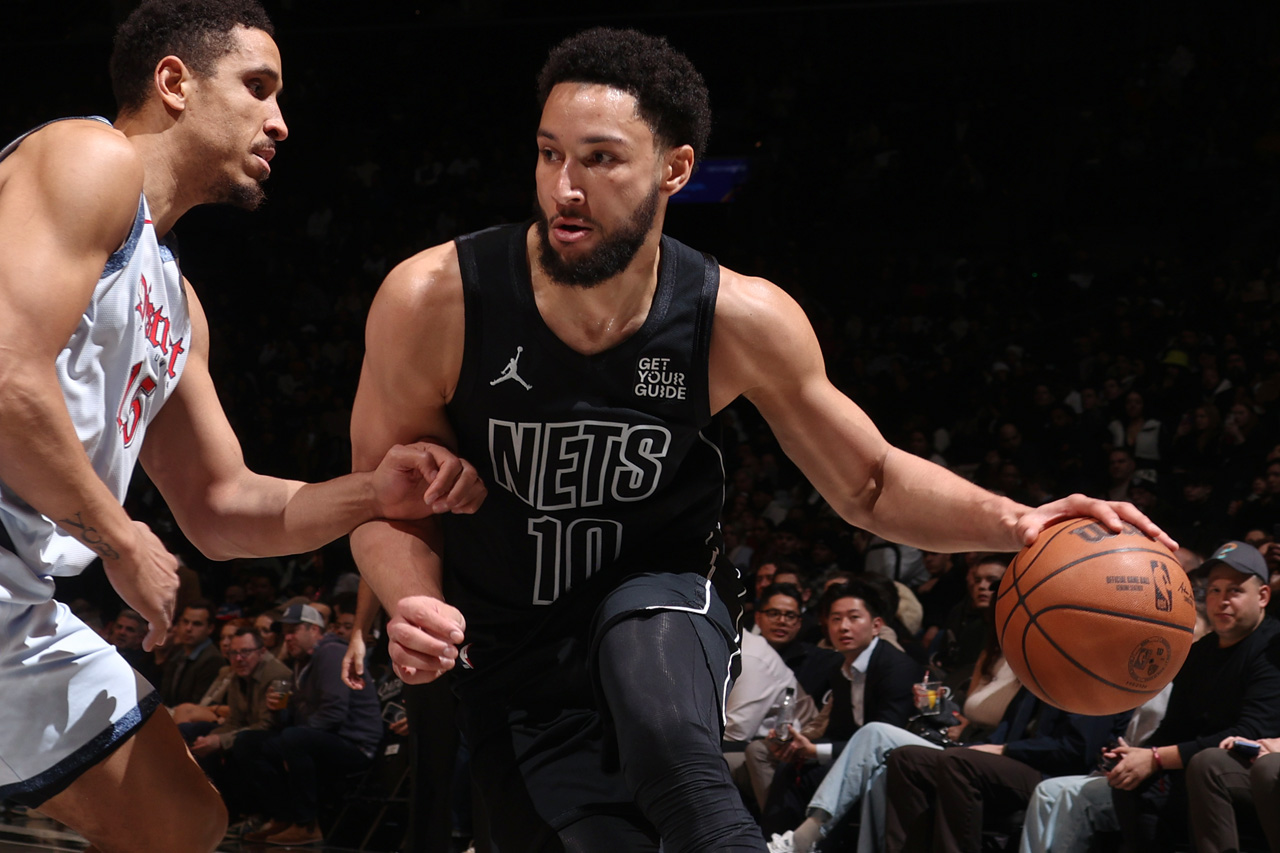
ESPN NBA analyst Brian Windhorst said on Thursday’s NBA Trade Deadline show that Brooklyn Nets forward Ben Simmons is working on a buyout and the Houston Rockets is a potential landing spot for him.
“Cleveland and Houston are two situations for Ben Simmons,” said Windhorst.
Brian Windhorst says the Cavaliers and Rockets are buyout locations for Ben Simmons.
Thoughts? pic.twitter.com/7ly4mvmxr5
— ClutchFans (@clutchfans) February 6, 2025
Advertisement
Rockets coach Ime Udoka was an assistant coach in Philadelphia in 2019-20 when Simmons was with the Sixers, before injuries took a significant toll. In fact, Udoka, when speaking about Amen Thompson earlier this season, brought up some comparisons to Simmons.
“The skill set is there, and it’s something that’s unique with his speed, athleticism, size, passing ability, and all those things,” said Udoka of Thompson. “I coached somebody, Ben Simmons, who had similar traits… as far as size and ability to push the pace, and find guys and finish. There are some similarities there.”
Both Thompson and Simmons are known for their elite athleticism, defensive versatility, and ability to create opportunities in transition.
However, can Simmons help the Rockets today? That’s the tough question.
Simmons has played in 33 games this season, averaging 6.2 points, 6.9 assists, 5.2 rebounds, 0.8 steals and 0.5 blocks in 25 minutes a night. He does not shoot threes (like, at all) — he has only attempted two threes in the past three seasons combined.
Ideally, he does not play in front of your young forwards of Amen, Tari Eason and Jabari Smith Jr. and on that basis alone, I think I would pass. But, Ime loves defensive dogs and he could use some extra ballhandling on the roster. You can see that there’s little in the way of offensive organization when Fred VanVleet is out.
There would be a comical full circle moment though if the Rockets did sign Ben Simmons, considering the Rockets were heavily criticized for trading James Harden in 2021 to Brooklyn instead of to Philadelphia for Simmons. The Rockets clearly made the right choice there.

